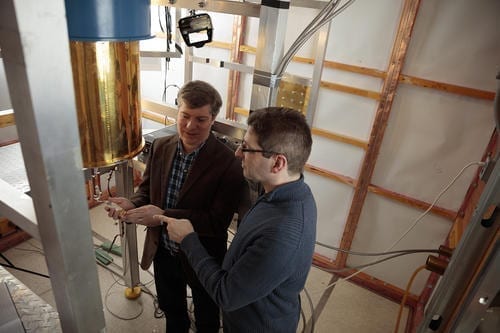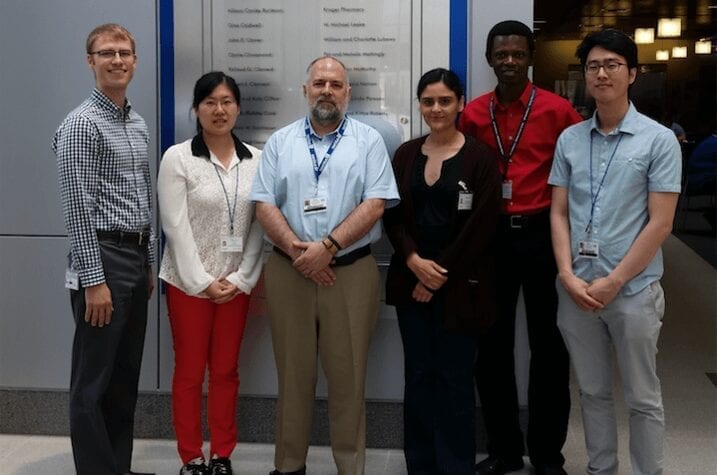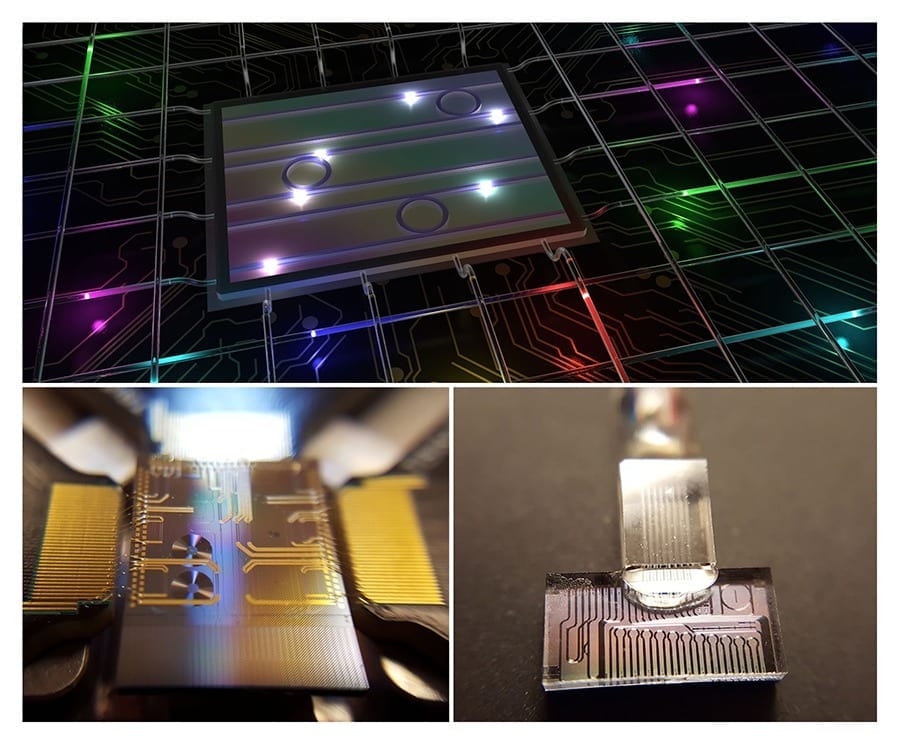
Potential for regenerative medicine and cancer research earns doctoral student Ido Sagi a Kaye Innovation Award
Stem cell research holds huge potential for medicine and human health. In particular, human embryonic stem cells (ESCs), with their ability to turn into any cell in the human body, are essential to the future prevention and treatment of disease.
One set or two? Diploid versus haploid cells
Most of the cells in our body are diploid, which means they carry two sets of chromosomes — one from each parent. Until now, scientists have only succeeded in creating haploid embryonic stem cells — which contain a single set of chromosomes — in non-human mammals such as mice, rats and monkeys. However, scientists have long sought to isolate and replicate these haploid ESCs in humans, which would allow them to work with one set of human chromosomes as opposed to a mixture from both parents.
This milestone was finally reached when Ido Sagi, working as a PhD student at the Hebrew University of Jerusalem’s Azrieli Center for Stem Cells and Genetic Research, led research that yielded the first successful isolation and maintenance of haploid embryonic stem cells in humans. Unlike in mice, these haploid stem cells were able to differentiate into many other cell types, such as brain, heart and pancreas, while retaining a single set of chromosomes.
With Prof. Nissim Benvenisty, Director of the Azrieli Center, Sagi showed that this new human stem cell type will play an important role in human genetic and medical research. It will aid our understanding of human development – for example, why we reproduce sexually instead of from a single parent. It will make genetic screening easier and more precise, by allowing the examination of single sets of chromosomes. And it is already enabling the study of resistance to chemotherapy drugs, with implications for cancer therapy.
Diagnostic kits for personalized medicine
Based on this research, Yissum, the Technology Transfer arm of the Hebrew University, launched the company New Stem, which is developing a diagnostic kit for predicting resistance to chemotherapy treatments. By amassing a broad library of human pluripotent stem cells with different mutations and genetic makeups, NewStem plans to develop diagnostic kits for personalized medication and future therapeutic and reproductive products.
Learn more: First ‘haploid’ human stem cells could change the face of medical research; earn Kaye Innovation Award
The Latest on: Haploid embryonic stem cells
[google_news title=”” keyword=”haploid embryonic stem cells” num_posts=”10″ blurb_length=”0″ show_thumb=”left”]- Ask the doctors: Stem cells from baby teeth must be carefully extractedon May 11, 2024 at 6:12 am
And now come the caveats. Stem cells can only be extracted from freshly removed teeth. This includes teeth that come out naturally and those that have been extracted. The baby teeth that some parents ...
- ERR-gamma 'trains' stomach stem cells to become acid-producing cellson May 10, 2024 at 8:00 am
Common conditions such as indigestion and heartburn as well as peptic ulcers, autoimmune gastritis and stomach and esophageal cancers have one thing in common—they involve disruptions of the normal ...
- Pluripotent stem cells articles from across Nature Portfolioon May 9, 2024 at 4:59 pm
Embryonic stem cells and induced pluripotent stem cells are pluripotent stem cells. IPSC-derived organoids model diseases. Multiplexed coculture and demultiplexing natural genetic barcodes aid in ...
- Stem cells: A new mechanical transduceron May 9, 2024 at 4:59 pm
In this research, human embryonic stem cells (hESCs) were employed by the researchers to delve into how cells detect and react to mechanical signals. Through an examination of the transcriptome of ...
- New stem cell research may have implications for liver transplantationon May 9, 2024 at 9:20 am
Liver disease, due to viral infections, alcohol abuse, obesity, or cancer, accounts for one in every 25 deaths worldwide. A liver transplant can be life saving for people with end-stage liver disease.
- Embryonic stem cellson October 11, 2022 at 3:49 am
Embryonic stem cells (ESCs or ES cells) are cells from the early embryonic development, from which all cells and organs of an individual descend. Embryonic stem cells are pluripotent, meaning that ...
- Guidelines for Human Embryonic Stem Cell Researchon March 28, 2020 at 8:00 am
In 2005, the National Academies released the book, Guidelines for Human Embryonic Stem Cell Research, which offered a common set of ethical standards for a field that, due to the absence of ...
- The Cloning Processon November 5, 2018 at 4:35 pm
we explain how we clone egg cells to create embryonic stem cells in our lab at Children's Hospital Boston. Unless otherwise noted, images show mouse cells.—Kitai Kim & Willy Lensch Drs.
- Embryonic and somatic stem cells as a source of genetic medicines.on October 8, 2018 at 4:34 pm
outer cell mass and inner cell mass. Embryonic stem cells are derived from the inner cell mass of the blastocyst. Embryonic stem cells in culture are capable of self-renewal without ...
- Obama to reverse embryonic stem cell banon March 5, 2009 at 4:00 pm
WASHINGTON (CNN)-- President Obama is planning to sign an executive order Monday to overturn Bush-era policy that limited federal tax dollars for embryonic stem cell research, according to ...
via Google News and Bing News










